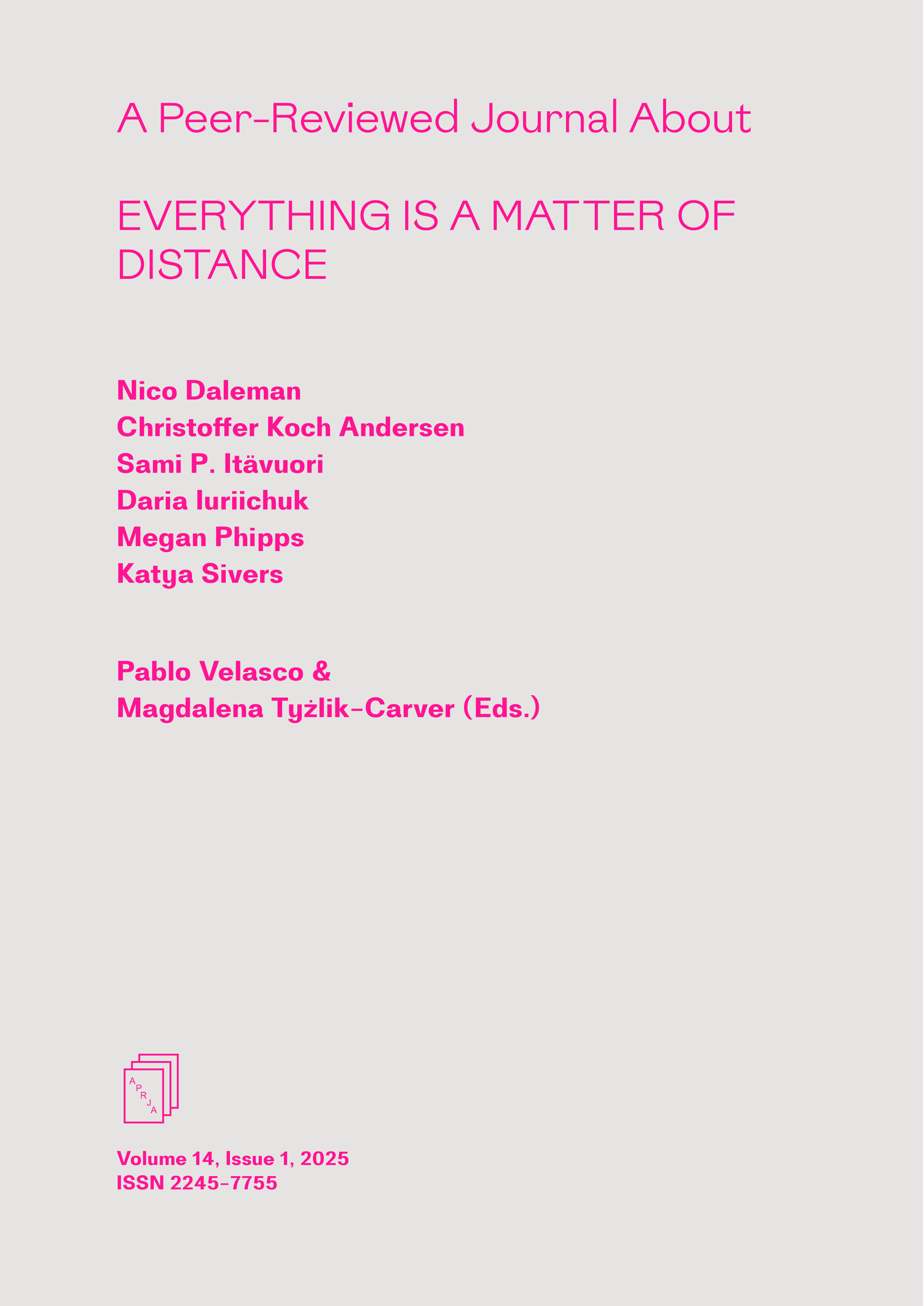Embodying Liminal Data Lives
Encoding The Aesthetics Of Trans Bodies As Algorithmic Distance
DOI:
https://doi.org/10.7146/aprja.v14i1.160273Keywords:
algorithms, colonial gender binary, liminal data lives, trans lives, algorithmic distanceAbstract
The idea that algorithms are infinitely improving our lives is presented as an undeniable truth, but for trans people, algorithms have violent, far-reaching implications. Behind the veil of neoliberal techno-optimism, algorithms perpetuate colonial and cisnormative legacies that anchor a binary idea of life, wherein the possible ‘human’ becomes the white, cisgender human, which in return violates and denounces trans people from not fitting the binary codes embedded into and making up algorithmic systems. Instead of complying with neoliberal beliefs in algorithms or falling short on critique, this article theorises the aesthetics of trans lives as embodied liminal data lives as a strategy of sensing distance to algorithms from the tactical uncodeability of transness in opposition to the binary confinements of algorithmic technologies. Taking this stance, this article asks: How can we create spaces of distance to algorithms in a world inherently entangled with them, and how can the liminality of trans data lives allow us to consider (im)possible ways of living and distancing as forms of resistance to the reality of algorithmic violence in which we exist?
Downloads
Published
Issue
Section
License
Copyright (c) 2025 Christoffer Koch Andersen

This work is licensed under a Creative Commons Attribution-NonCommercial-ShareAlike 4.0 International License.
Copyrights are held by the individual authors of articles.
Unless stated otherwise, all articles are published under the CC license: ‘Attribution-NonCommercial-ShareAlike’.
The journal is free of charge for readers.
APRJA does not charge authors for Article Processing Costs (APC)


